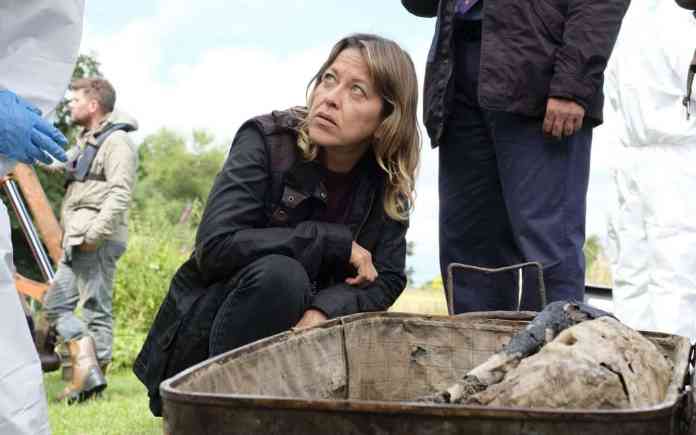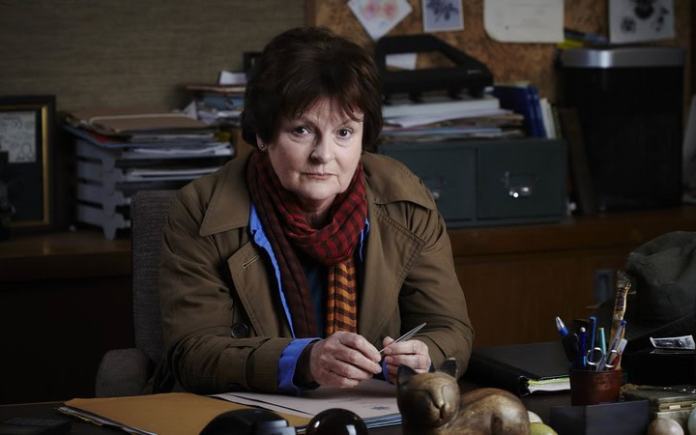
Let’s get real: crime dramas have long been a playground for keen-eyed detectives, but for decades, the bulk of the attention went directly to the dudes. Fortunately, times have shifted. Women detectives aren’t just entering the frame; they’re totally rewriting it. From British mysteries to international thrillers to character-driven procedurals, these women don’t simply solve the case; they turn the script on what a crime drama can do. So, in the tradition of giving them their rightful kudos (and because backward counting is so much more fun), here are 10 of the most iconic female crime drama detectives, and why they still matter.

10. McDonald & Dodds
If you’re a fan of odd-couple dynamics, this show nails it. DCI Lauren McDonald (Tala Gouviea) is fearless, quick-witted, and bold, while her partner DS Dodds (Jason Watkins) is socially awkward yet quietly brilliant. Set against the gorgeous backdrop of Bath, the series brings lighthearted charm but doesn’t skimp on clever mysteries. McDonald’s presence is more than just refreshing; she’s proof that “powerful and smart” female leads can carry a show with ease.

9. Rosemary & Thyme
Murder and horticulture are an odd but surprisingly ideal pairing. Rosemary Boxer and Laura Thyme are not your usual detectives. They have a landscape business, but somehow find themselves blundering into crimes that must be solved at every corner. What makes them so unforgettable is their humor, warmth, and keen detective’s mind, tending to outperform the actual police. They’re the living proof that sometimes it’s the most unconventional of heroines who prove to be the best sleuths.

8. Unforgotten
Few programs depict empathy in detective work better than Unforgotten. At the heart of it is DCI Cassie Stuart (played by Nicola Walker), whose compassion and determination made the series one of the greatest cold case dramas ever produced. Even after Cassie leaves, her replacement, DCI Jess James (Sinéad Keenan), continues the legacy. These women are detectives, but they are also compassionate forces who never forget that justice isn’t all about answers, but about people.

7. D.I. Ray
Rachita Ray, Parminder Nagra’s character, brings a viewpoint that crime dramas have long been missing. She navigates the demands of her investigations with personal issues, whether it’s dealing with microaggressions in the workplace or complicating her love life. D.I. Ray is not your standard procedural; it’s an intelligent consideration of resilience and representation. Ray’s battles make her triumphs all the more poignant.

6. The Bletchley Circle
Based in post-WWII Britain, this show is a love letter to the brains and camaraderie of women. A team of former codebreakers gets back together, not to fight foreign enemies, but to fight domestic murders. Each woman possesses specific skills, and as a team, they demonstrate that the acuity of their brains did not disappear with the war. It’s all about friendship, purpose, and restoring agency in a world keen to ignore them.

5. Scott & Bailey
This Manchester drama presents us with three tough female detectives whose own lives are as complicated as the case they are investigating. The strength of Scott & Bailey is its truthfulness. The characters are good, flawed, at times unlikable, but true. The combination of vulnerability and toughness makes for a programme that is as much about people’s strength as it is about catching criminals.

4. Prime Suspect
Helen Mirren’s Jane Tennison didn’t only revolutionize British television, she revolutionized the entire genre. Tennison was revolutionary: a woman detective who battled through insurmountable hurdles and still solved the most difficult cases. Her evolution from being the only woman in the room to becoming a respected figurehead set the stage for virtually every female detective that came after her. Prime Suspect is not only a series, it’s history.

3. Broadchurch
Olivia Colman’s DS Ellie Miller is the emotional core of Broadchurch. Though the show’s darkly serious premise might have relied on tragedy, Ellie infused it with humanity, empathy, and tenacity. Her chemistry with David Tennant’s DI Alec Hardy is legendary, but don’t confuse: Ellie is the one who infuses the series with heart. Without her, Broadchurch just would not carry the same gravity.

2. Agatha Christie’s Marple
Years before television was filled with crime procedurals, there was Miss Marple. She might have appeared as a demure, inconspicuous old lady, but her mind could outsmart any cop on the force. Brought to life memorably by Geraldine McEwan and Julia McKenzie, Marple is one of the greatest sleuths in fiction. Her combination of wit and oblique observation proves that the greatest power tends to be right under your nose.

1. Vera
Brenda Blethyn’s DCI Vera Stanhope is the epitome of iconic. Gruff and gruff, yet kind and kind; lonely and yet so maternal, Vera is a walking paradox, and that’s what makes her so magnetic. She’s as captivating as the complex cases she solves, and her influence on crime drama cannot be overstated. Vera doesn’t only solve crimes; she redefines heroism.

What binds these women is not merely their keen detective prowess; it’s the authority they exercise in a genre where they once took a backseat. “Female protagonists tend to come into the room with the largest ‘weapon’ in it,” one crime author described, “and they don’t give it up, don’t apologize for it, and don’t relinquish it until the final page”.

But here’s the thing, these narratives don’t exist in a vacuum. In the actual world, women encounter systemic barriers within the criminal justice system: poverty, trauma, domestic violence, mental illness, and inequity that all too often go unaddressed. Many of the women currently incarcerated have known homelessness before ever encountering the law. Fiction acknowledges these realities, and fiction also can disturb them.

As we watch women detectives battle for justice on television, we’re watching more than just a show. We’re seeing narratives that debunk stereotypes, empower viewers, and remind us that strength is not a synonym for invincibility; it’s about perseverance, flexibility, and leading with power. That’s why these shows are important: because every case they crack is also a win for representation, agency, and the notion that women can, and should, be at the forefront of the narrative.